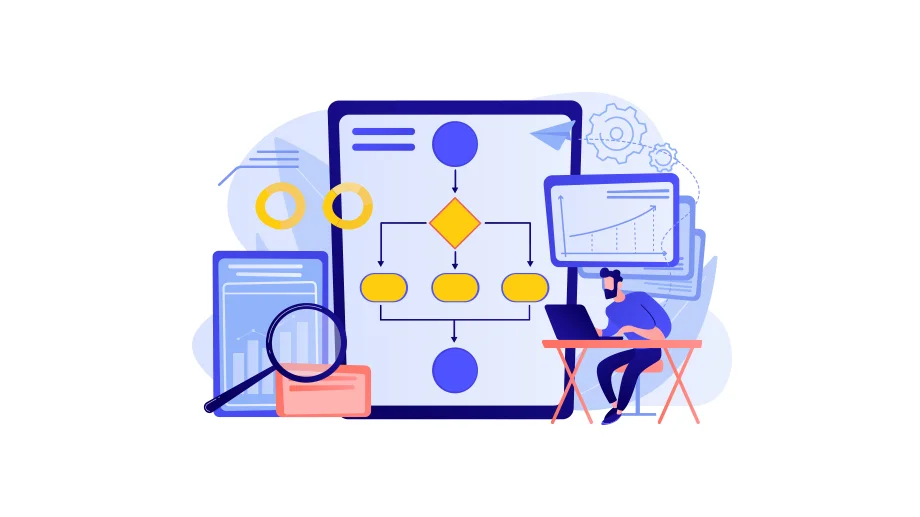Enterprise companies are facing a real challenge in the age of field service automation. The challenges are unique to every business as services provided, company size and operations differ largely. These dimensions are enough to prove that the ‘one-size-fit-all’ approach is redundant. Therefore, custom workflows are non-negotiable for field service businesses.

In this blog, let’s take a look at what these challenges and its solutions are.
The field service workflows can be quite complex with a number of different steps. We have identified these key steps:
- Scheduling assignments, work orders, and employee shifts. Usually this information is in .csv files, Google Calendar, ERP or scheduling systems.
- Dispatch passes information such as shift details, daily or weekly reminders, and task notes to the field employees through SMS, Email, Voice or App.
- Collect Field Data involves logging attendance at geofenced job-sites and collecting task related data via notes, customizable mobile forms, photographs, client signatures, and QR codes.
- Monitoring is all about viewing your team in the field in real-time. You can monitor field operations with exception alerts based on customer workflow rules (IFTTT or IF-This-Then-That).
- Reporting is about gathering real-time field intelligence and insights to improve payroll, productivity and operations. Integration of the reports with Payroll and HCM systems enables more automation.
Field service workflows can vary from company to company. For instance, a simple time and attendance workflow will be different from a QR code time and attendance workflow.
There are different tools that are available for each of these steps and making sure that you can pass information from one tool to the next is absolutely a must. This means that apart from custom workflow capabilities, integration capabilities are a must.
Not only that, you need to be able to customize each and every step in the field service workflows to meet each business’ unique requirements.
For example, imagine a scenario where you wanted to create a daily schedule for your field team, record start times, send reminders for mandatory breaks (based on OSHA compliance requirements), record attendance, deduct hours/miles based on regulations, measure against their planned schedule and finally audit and adjust operations to meet their SLA. Most field service businesses need to create workflows with this level of customization to improve field employees’ productivity. The key is for all this customization to be done in a low code, low IT platform that makes it possible to automate all parts of the field operations workflow over time.
In addition to customization of field service workflows, businesses know that the quality of service is strategic to their viability and future growth. So how would you go about measuring the quality of field service?
There are specific field service KPI’s that almost all companies track. How many field jobs are being completed every day? What is the average number of jobs per field employee? How much time is each field employee spending at job sites? How does it correlate with customer ratings? And so on.
All of the activities that are part of field service operations need to be measured against the KPI’s. It helps identify gaps in your field operations. The next step is go back and fix those issues. This find issues & fix them loop is a continuous process of improving field operations.
Hence, we add two more steps to the field service workflow:
- Measure your designated KPI’s in real-time against goals.
- Optimize is the final step where you identify where your measured KPI’s fall short of goals and go back to one of the earlier steps to address it.
To address customization and measurement, field service companies need to look for enterprise-grade solutions that address these specific areas. To learn more about customizing your field service workflows and measuring field performance, give us a call or send us an email, or sign up for a free trial.
About allGeo
allGeo helps SMBs and Enterprise businesses better manage mobile workforce and field operations with tools such as real-time location, GPS time and attendance, geofence visit logs, Lone worker safety, Mobile forms and more! All the tools can be highly customized to fit each use case. The platform features powerful rules engine and integrates with popular back-end CRM, HRMS, and Payroll systems to automate day-to-day operations.
allGeo serves customers from a wide range of industry including field service management, trade services, emergency responders, sales reps, transportation & logistics, oil & gas, home health care providers. These customers do report improvement in productivity and savings in payroll.



